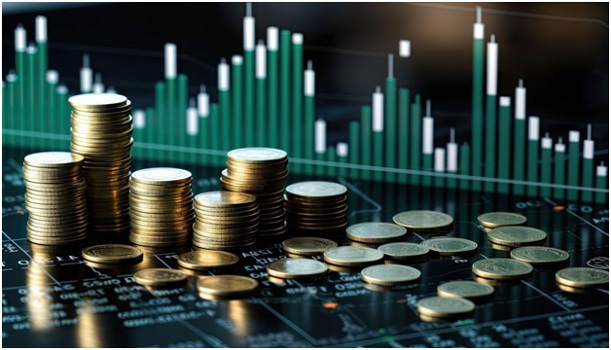The profitability” of FX trading has long been a subject of passionate discussion, attracting both seasoned investors and newcomers seeking financial success. Some see forex trading as a way to get rich. Others stress the risks and uncertainties. This exploration explores 2024’s complex forex trading landscape. We will examine profitable strategies and risk management methods in this dynamic market. We intend to illuminate Forex trading success factors through a thorough analysis. Additionally, we will provide insights to help traders navigate the Forex market and maximize profits.
The 24/7 Operation of the Forex Market
Forex is unique because it’s open 24/7 in many time zones. This 24/7 operation gives traders unprecedented freedom to trade anywhere in the world. Forex traders trade without opening or closing bells, unlike stock traders.
Its accessibility and flexibility attract forex traders worldwide. Many online trading platforms and technological advances allow millions to trade currencies daily. Tokyo, London, and New York have open Forex markets 24/7. It simplifies transactions and lets traders use real-time price changes.
Forex benefits full-time professionals and part-time traders because it’s open 24/7. Full-time workers and others can trade Forex at their convenience. Technology has also made Forex trading easier. Mobile trading apps and advanced trading platforms allow traders to trade from their phones or tablets. Even when traveling, traders can stay connected to the market. The market can be checked and traded while traders relax by the pool on Sunday afternoons or on their way to work in the morning. They trade more efficiently and productively.
The Forex market is huge, with an average daily trading volume of over $6.6 trillion, according to BIS data. This huge number shows how liquid and deep the Forex market is. One of the world’s largest and most liquid financial markets. The Forex market has a large trading volume, so traders can profit from price and currency fluctuations.
Forex markets are open 24/7, so money is always available. Trading occurs across many time zones. This constant liquidity improves trade execution, reduces slippage, and keeps prices competitive for traders. Trading major currency pairs like EUR/USD or exotic currency pairs offers tight spreads and smooth trade execution 24/7.
Leveraging Forex: Maximizing Profits with Minimal Investment
Forex traders enjoy leverage because it lets them control positions worth much more than their initial investment. With a small deposit, traders can trade large volumes and increase their chances of making money. However, leverage must be handled carefully to avoid major losses.
Forex traders usually use leverage to take larger market positions with less money. A 50:1 leverage ratio allows a $50 margin deposit trader to hold a $2,500 position. Since even small market price changes can lead to big gains, the chance of making money is higher.
Loaning money to trade is appealing because it can maximize returns with minimal investment. Traders can use their investments to take larger market positions, increasing their chances of profit. This feature makes Forex trading possible for many investors, from beginners to pros who want to make the most money.
When traders use leverage, profits and losses can increase significantly. However, a single bad trade could result in a loss greater than the trader’s investment, which can be catastrophic. Thus, leveraged trading requires risk management.
Traders must manage risk to reduce leverage. Stop-loss orders, portfolio diversification, and debt reduction are needed. Traders use leverage management to conserve capital and reduce market volatility.
Similarly, forex leverage is much higher than stock leverage. For overnight holds, most stockbrokers offer 2:1 leverage and 4:1 for day trading. Forex brokers offer 50:1 leverage. Offshore brokers with 500:1 leverage are riskier.
Leverage trading can lead to high returns, but it also poses high risks. Mismanagement can result in significant losses. Use leverage only on positions traders can afford to lose.
Profit Potential in Forex: Exploiting Market Dynamics
Because it changes constantly and you can trade currency pairs in both directions, the Forex market offers many ways to make money. Investors aim to profit when asset prices rise in the stock market. Forex traders profit when currency values rise or fall. This unique Forex market feature allows traders adjust their strategies based on market performance, increasing their chances of profit.
Let us take a look at an example of a trader who believes that the value of the EUR/USD pair will increase in the immediate future. Buy euros with US dollars and go long. The trader can profit by closing the position at a higher price if the euro rises against the dollar. The trader can sell euros for dollars and open a short position if they think the euro will fall. The trader can profit from buying euros back at a lower price if the expected euro drop occurs.
Successful Forex traders average over 10% a month, according to reliable sources. This suggests that skilled traders with good trading strategies and risk management can make a lot of money in the Forex market. However, Forex trading is risky and losses are common.
Furthermore, traders can profit from rising and falling currency prices in the active Forex market. This makes it popular with money-makers. By using strong trading strategies, managing risks, and staying current on market developments, traders can maximize profits from the Forex market.
Managing Forex Risks for Profitable Trading
In fast-paced Forex trading, risk management is crucial to success. Traders use many methods to protect their capital and minimize losses. Set stop-loss orders to automatically exit trades at set prices to reduce risk. This minimizes losses and prevents emotional trading. You can also reduce market risk by diversifying your currency portfolio. Risk management also requires disciplined trading plans. Sticking to strategies and not making snap decisions can help traders stay consistent and reduce emotional trading.
Research from the Forex Risk Management Institute shows that strict risk management rules matter. Studies show that these steps can reduce big losses by 50%, demonstrating their importance for trading capital safety. The Forex market’s many challenges require good risk management to make a steady profit. Strong risk mitigation strategies can help traders avoid losses, preserve capital, and succeed long-term.
Factors Contributing to Forex Trading Risks
Forex trading can be profitable but has many risks from various sources. These risks can make trading harder and affect performance.
Forex risk is high due to unpredictability. Unexpected events and market swings are common. Economic data, geopolitical tensions, and central bank announcements can cause prices to change quickly, causing traders to make or lose a lot of money. The Swiss National Bank abruptly lifted the price cap on the Swiss franc against the euro in January 2015. Traders who weren’t ready for the franc’s value spike lost much money.
Small traders struggle with asymmetric risk-to-reward ratios. New traders often make snap decisions without considering the consequences, while experienced traders minimize losses and maximize gains. They may hold onto losing trades for a long time, hoping for a change that may never come. This risk management imbalance can cause large losses and trading capital losses over time.
Forex trading risks increase with market volatility. Market sentiment, economic indicators, and geopolitical events can quickly affect currency prices. Trade slippage when they are executed at a different price than expected and traders lose money is more likely in volatile markets.
Forex trading is riskier with leverage, but it can boost profits. When traders use margin, they can take bigger positions with less money, increasing their gains and losses. However, too much leverage can cause margin calls and trading accounts to run out of money quickly, especially during volatile or unexpected market movements.
Retail Forex traders also struggle due to a lack of information. Exclusive research, market intelligence, and cutting-edge trading technologies give large financial institutions and institutional traders an edge over retail traders. Retail traders may struggle to make smart trading decisions due to a lack of tools and knowledge.
Trading Low-Volatility Currency Pairs
Forex traders use various risk-reduction and gain-maximizing strategies to stay profitable. Smart strategies can increase your chances of making money in volatile currency markets, but no strategy guarantees success.
Trading low-volatility currency pairs is smart. Investors who want to protect their money should consider these pairs because their exchange rates are stable. Low-volatility pairs may not make you a lot of money right away, but they stabilize and protect you from losing money on more volatile pairs.
Diversifying your portfolio is also crucial. By trading multiple currency pairs, traders reduce their risk of market swings. A balanced portfolio with high and low volatility pairs can help traders profit from market conditions. You can compensate for a loss on one currency pair by winning on another. This backup plan protects your profitability.
Forex traders must plan to stay profitable. Traders should look at their weekly, monthly, and annual performance instead of just their daily gains or losses. Looking at the big picture helps traders assess their profitability and make smart trading strategy decisions.
In Closing
A complex world of chance and risk awaits those who explore Forex trading’s profitability. The Forex market is open 24/7, and there are many ways to make money trading currencies. These include seizing opportunities, leveraging, and profiting from market dynamics. These opportunities carry risks like market volatility, leverage losses, and unplanned events.
Despite these issues, disciplined, risk-managing Forex traders who look at the market long-term can make money. Diversify, set stop-loss orders, and follow trading plans to reduce risk and protect money. Forex trading can be lucrative if you make smart decisions, are flexible, and understand how complicated the market is. Forex traders can make money and reach their financial goals if they handle these issues skillfully and diligently.




















